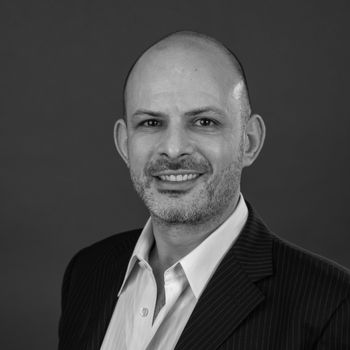PROF GIORDANO: We need urgent reforms to restore American excellence
Colleges fail to produce an engaged citizenry capable of participating in the American system. This erosion of American values undermines the principles of free speech, intellectual diversity, and open debate.
Nicholas Giordano is a professor of Political Science, the host of The P.A.S. Report Podcast, and a fellow at Campus Reform’s Higher Education Fellowship. With 2 decades of teaching experience and over a decade of experience in the emergency management/homeland security arena, Professor Giordano is regularly called on to speak about issues related to government, politics, and international relations.
College graduations are a significant milestone for students, marking the beginning of a new chapter in an individual’s life. These ceremonies embody cherished values, such as tradition, individual achievement, and the relentless pursuit of excellence. While it is important for students to take pride in their accomplishments, it is crucial to acknowledge the failures of our academic institutions.
Declining academic standards, ideological influence, declining values, the suppression of free speech and intellectual diversity, and remote learning on college campuses have greatly contributed to a student body that is less prepared professionally and civically than previous generations.
Academic rigor, once the cornerstone of higher education, has been compromised by lowered standards, grade inflation, and the introduction of equitable grading systems. These factors have collectively contributed to a decline in the quality of education, leaving students ill-equipped for the challenges they will encounter in their professional lives.
[RELATED: PROF GIORDANO: Higher education is undermining America by pushing ‘global citizenship’]
Part of academia’s responsibilities includes instilling values of personal responsibility and a strong work ethic in their students. Unfortunately, some institutions have strayed from these principles, favoring an environment that promotes entitlement and dependency.
With lower standards and the introduction of equitable grading systems, the importance of merit and individual effort is disregarded. As a result, the development of responsible and hardworking individuals is hindered, negatively impacting society as a whole.
Another failure within academia is higher education’s inability to improve critical thinking skills. A 2017 study found that at least one-third of college graduates were unable to develop a cohesive argument, identify quality evidence, and interpret data. These numbers have likely worsened post-pandemic, reflecting the alarming decline witnessed in basic proficiency levels, as well as the diminishing performance in ACT and SAT scores.
Rather than arm the student body with reasoning and problem-solving skills, many colleges and universities have chosen to adopt Diversity, Equity, Inclusion, and Social Justice (DEISJ) initiatives pushing a radical far-left agenda that infects classrooms and campus life.
[RELATED: ACADEMICALLY SPEAKING: Why ‘decolonized’ campuses affect America’s national resolve]
The consequences of this indoctrination are evident throughout society, as many graduates lack the ability to engage in open and respectful dialogue. The suppression of free speech and intellectual diversity on college campuses has created a chilling effect, with 80% of students self-censoring their viewpoints. Additionally, one-third of students believe it is acceptable to shout down guest speakers. These trends highlight the failure of colleges to produce an engaged citizenry capable of participating in the American system. This erosion of these all-important American values undermines the principles of free speech, intellectual diversity, and open debate that are vital to American society.
Exacerbating these failures were the authoritarian mandates imposed upon students by zealous college officials and public authorities, compelling them into remote learning. The repercussions have been severe, with isolation and the absence of in-person interactions triggering a profound mental health crisis among students.
Deprived of campus life experiences and personal connections, their overall well-being, academic progress, and social development have been compromised. Furthermore, ill-conceived vaccine mandates have compelled certain students to persist in remote learning, while even those who returned to campus were burdened with the ongoing requirement of wearing masks, perpetuating the decline in social activity.
While college graduation is a joyous occasion, we must reflect on the institutional failures within higher education. Without substantial reform, higher education will hasten its own journey toward irrelevancy.
We need robust standards that push and challenge students to think critically - a system where merit and a strong work ethic are instilled in the student body. We need to do away with divisive DEISJ initiatives, and promote important values such as free speech and open debate. By addressing these concerns, we can begin to repair the damage inflicted over the last decade.
Editorials and op-eds reflect the opinion of the authors and not necessarily that of Campus Reform or the Leadership Institute.

